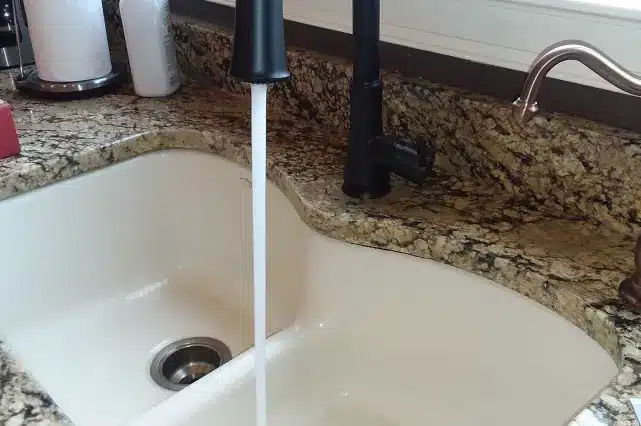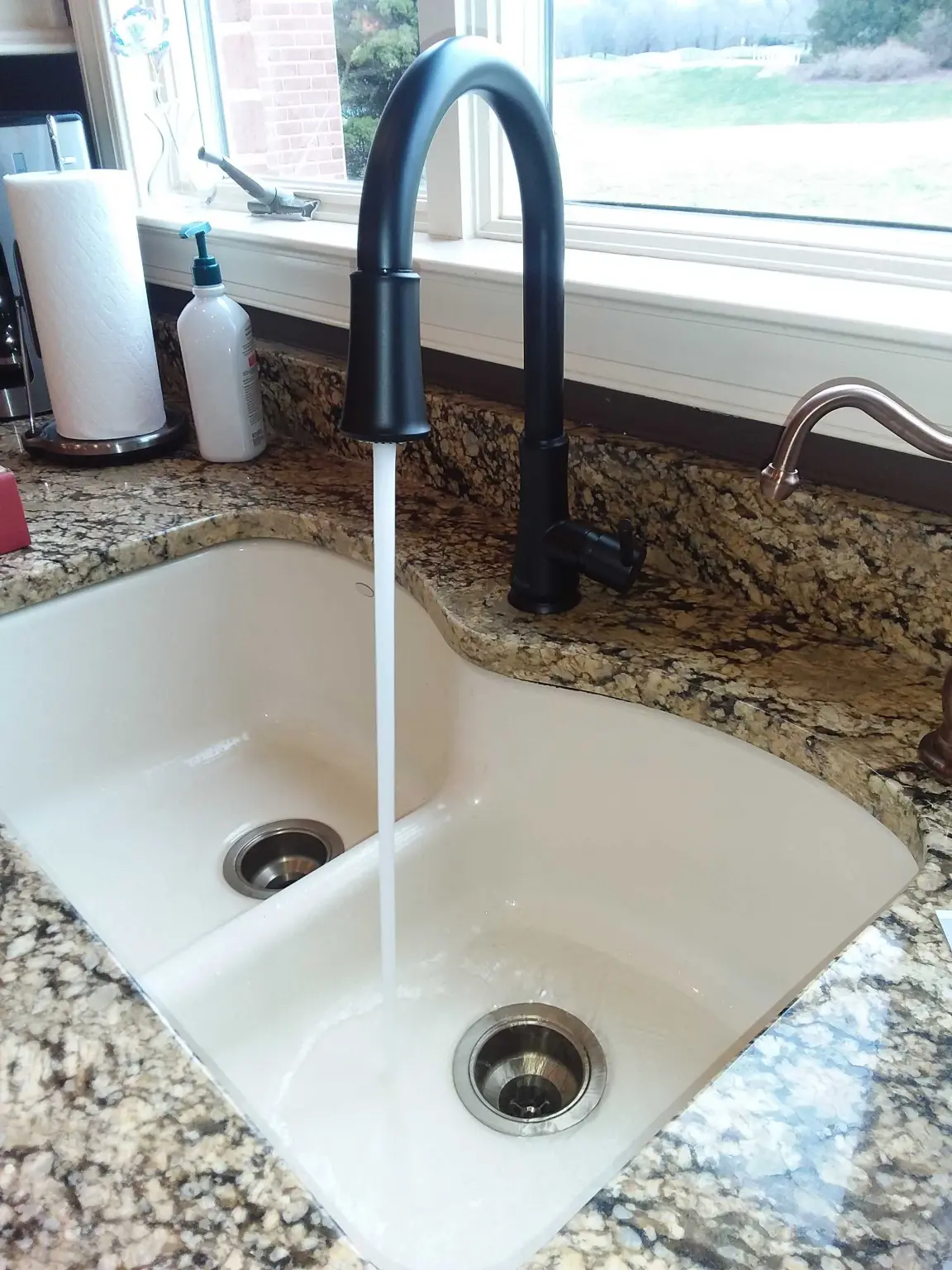
VITO SERVICES GIVES CUSTOMERS TIPS FOR GARBAGE DISPOSAL MAINTENANCE
Using a garbage disposal is a great way to reduce food waste and make cleaning up after meals easier. But like every home appliance, garbage disposals are prone to malfunctioning, and they require regular maintenance to function properly. It's recommended to clean the garbage disposal once a week to keep it running smoothly. Over time, food particles and grease can accumulate in the disposal, leading to clogs and unpleasant odors.
Regular cleaning can help prevent these issues and prolong the life of your garbage disposal. There are several ways to clean a garbage disposal, including using ice cubes and rock salt, baking soda and vinegar or specialized cleaning products designed for garbage disposals. You can also consult your garbage disposal manual for specific cleaning instructions and recommendations.

TIPS FOR GARBAGE DISPOSAL MAINTENANCE
Since 1934, Vito Services has repaired, maintained, removed and installed thousands of sink disposals across The DMV. Here are Vito Plumbers' tip for proper garbage disposal maintenance.
BE MINDFUL OF SIZE AND QUANITY
When using a garbage disposal, pay attention to the size and quantity of items you put in it. Garbage disposals are designed to handle small food scraps, not large chunks of food or non-food items like utensils or plastics. Putting too much food or large items in the disposal can cause it to jam or even break.
USE COLD WATER
Running cold water when using your garbage disposal is important for several reasons. First, cold water helps solidify any fats or oils that may be in the disposal, making it easier for the blades to chop them up and prevent clogs. Second, cold water helps prevent overheating of the motor by keeping it at a lower temperature.
Lastly, running cold water helps flush any remaining food particles down the drain and into the sewage system. It's a good idea to run cold water for at least 20 to 30 seconds before and after using your garbage disposal.
AVOID PRODUCTS THAT CAN DAMAGE GARBAGE DISPOSALS
While a garbage disposal is a handy appliance to have in your kitchen, it's essential to understand what you can and can't put into it to avoid any damage or clogs. Some products that you should never put in your garbage disposal include:
Grease, fat and oil (FOG): Pouring oil and grease down your disposal can lead to clogs and damage your pipes, causing costly repairs.
Large bones: While smaller bones, such as fish bones, are typically okay to dispose of, larger bones from beef or pork can damage your disposal's blades.
Fibrous vegetables: Vegetables like celery, asparagus and corn husks contain long fibers that can wrap around your disposal's blades and cause clogs.
Coffee grounds: Although coffee grounds might seem harmless, they can build up over time and cause blockages in your pipes.
REGULARLY RUN YOUR GARBAGE DISPOSAL
When the disposal is not used for an extended period, food waste can build up and harden, which can cause clogs and damage to the disposal blades. Running the disposal with cold water for a few seconds after each use can help flush away any remaining food particles and keep the disposal clean. Additionally, regular use can prevent foul odors from developing in the disposal and drain.
HOW TO CLEAN YOUR DISPOSAL
By following these steps and cleaning your garbage disposal regularly, you can keep it running smoothly and eliminate any unpleasant odors in your kitchen:
- Turn off the power: Make sure the garbage disposal is turned off by unplugging it or turning off the circuit breaker that powers it. This way you can avoid getting injured by the sharp blades if the garbage disposal gets accidentally turned on.
- Remove any debris: Use a pair of tongs or pliers to remove any large debris, such as food scraps or utensils, that may have gotten stuck in the disposal.
- Add cleaning solution: Pour a cleaning solution down the disposal. You can use a mixture of vinegar and baking soda, specially formulated garbage disposal cleaner or even lemon peels and ice cubes.
- Let the solution sit: Allow the cleaning solution to sit in the garbage disposal for a few minutes to break down any grease or buildup.
- Scrub the inside: Use a long-handled scrub brush to clean the inside of the garbage disposal. Make sure to scrub the impeller blades and the top of the disposal unit.
- Rinse with cold water: Run cold water down the disposal for a minute or two to flush out any remaining debris or cleaning solution.
- Turn the power back on: Once you've cleaned and rinsed the garbage disposal, turn the power back on and run it for a few seconds to make sure everything is working properly.
ARE YOU IN NEED OF GARBAGE DISPOSAL REPAIR OR REPLACEMENT?
If you are experiencing issues with your garbage disposal or your garbage disposal has taken its last breath and you're in need of a replacement, don't hesitate to contact our professional plumbing team today. Leave it to Vito for expert garbage disposal installation and repair!







